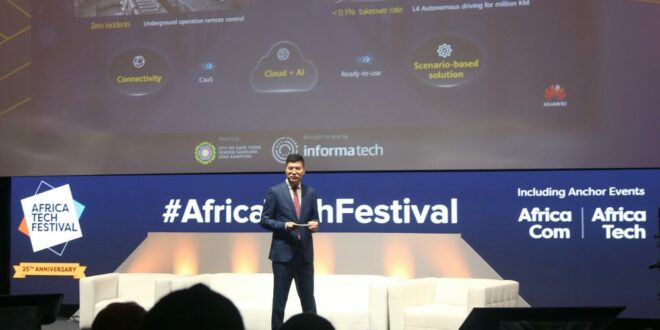After two years of virtual gatherings, AfricaCom’s annual event – Africa’s largest tech conference – has returned in person with a message of hope for the continent.
“The high flexibility and rapid growth of the continent’s digital economy, technologies such as 5G, artificial intelligence, and cloud are developing rapidly, and the adoption of ICTs in a wide range of industries is increasing,” said Liu Chen, President of Huawei Sub-. Sub-Saharan Africa region, in the opening opening remarks. “They support Africa in driving the tech revolution, increasing productivity and increasing employment.”
Held at the Cape Town International Convention Center (CTICC), the event featured African operators, industry figures and opinion leaders. Huawei had a great presence at the event, under the theme “Lighting Up the Future”.
Chen told the audience that over the past two decades, Africa has made great progress in digitization. It has created a first mile infrastructure, connecting countries on the continent to the global internet. It has tripled the internet infrastructure for the average mile that extends connectivity within and between countries.
However, there are still challenges to be overcome.
“Today, we still need to improve last-mile broadband infrastructure and bridge the digital divide between urban and rural areas.”
While there is a desire for greater uptake of digital technologies, limitations including skills shortages and lack of viable technology solutions are holding back progress in ICT adoption.
Chen Saked There are three main ways to break through these bottlenecks.
“We need to further deepen connectivity to connect more people, organizations and scenarios; unlock digital productivity and enable digital transformation in many industries; increase energy efficiency in the ICT industry and leverage ICT technologies to reduce emissions in all industries.”
Of particular relevance to the African context were case studies on the digital transformation of the port and mining sectors in China, which attracted widespread interest from their African counterparts. These case studies provide a reference for the development potential of the digital economy in Africa, as 90% of Africa’s imports and exports are transmitted by sea, and mining is an important source of wealth creation for many African countries.
Chen said that as the African digital ship sails into the future, it requires strong winds to propel it forward. He called for more favorable industrial policies, and more cooperation between the public and private sectors.
To this end, Huawei has established four innovation centers in Africa, launched several plans to support the development of small and medium-sized enterprises (SMEs), and will train 100,000 “digital heroes” in Africa over the next three years.
Originally posted 2022-11-18 10:00:26.
